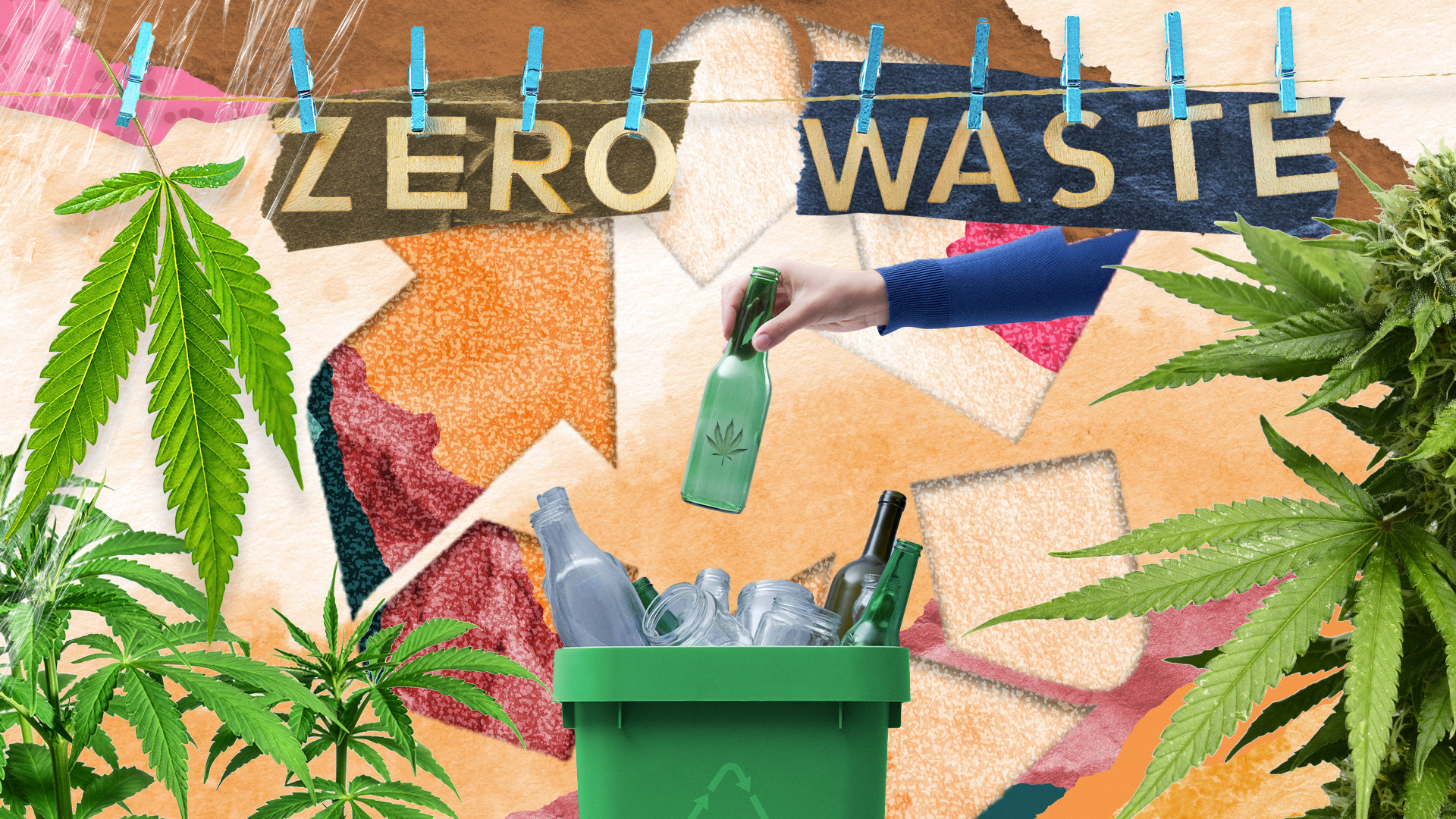Because the hashish trade blooms throughout the globe, so too does its influence on the atmosphere. Merely put, this trade has grown exponentially, with analysis estimates exhibiting america is projected to generate income to the tune of practically $43 billion in 2024. Moreover, gross sales are set to hit $102 billion by 2026 From the water and land used to develop for cultivation to the waste it leaves behind, this inexperienced enterprise isn’t all the time as “green” as you would possibly assume.
However right here’s a thought: what if we might flip the tables on waste? Think about recycling the leftovers from hashish manufacturing—just like the stems, leaves, and different bits that aren’t bought.
May this observe assist us make the trade extra sustainable, lowering its environmental footprint? That is the query we’re diving into: Can hashish waste be recycled, and in that case, how might this transfer us nearer to a extra sustainable world?
Understanding Hashish Waste
Hashish waste consists of all non-hazardous supplies and by-products ensuing from the manufacturing of hashish. Ought to the waste embody hazardous parts—equivalent to chemical substances, radioactive substances, or biologically harmful compounds—it requires particular disposal strategies.
Typically, hashish waste consists of, however is just not restricted to:
- Rising Provides: This class covers soil, hydroponic sponges, and different cultivation instruments.
- Surplus Plant Components: Contains the eliminated and unused sections of the plant, like roots, in addition to another plant materials that isn’t used, all categorized as natural waste.
- Outdated or Unused Hashish Objects: This consists of CBD merchandise and should vary from liquids and tinctures to oils, extracts, and different objects infused with hashish.
- Hashish-Associated Equipment: Objects equivalent to vape pens, grinders, jars, capsules, or any packaging that has been involved with or used for storing or processing hashish.
Earlier than these supplies might be labeled as waste, producers should make them unusable. It’s the companies’ duty to work out how one can destroy hashish merchandise and their packaging successfully. As an illustration, a glass container used for CBD merchandise could possibly be shattered to make sure neither its contents nor its label might be recognized.
The aim of such stringent disposal pointers is to forestall any likelihood of unauthorized reuse or resale. Think about if a hashish farm disposed of its extra hemp and hashish brazenly. This might result in theft, with the stolen supplies probably being resold or used illegally, fueling secondary and illicit markets.
Why You Ought to Get Your Medical Marijuana Card
Veriheal has glad hundreds of thousands of sufferers nationwide by giving them entry to those advantages
- Bigger buy limits
- Peace of thoughts
- Enhanced authorized safety
- Entry to larger efficiency strains
- Save as much as 25% on hashish purchases
- Skip the road on the dispensary
The Potential for Recycling Hashish Waste
Recycling and repurposing hashish waste not solely addresses environmental issues but additionally opens avenues for innovation and sustainability in varied industries. Under are key strategies by which hashish waste might be successfully reused:
- Composting for Soil Enrichment: Reworking hashish waste into compost enriches the soil, offering invaluable vitamins for future agricultural and gardening initiatives.
- Conversion into Biofuels or Power: Hashish waste might be processed into biofuels, providing a renewable power supply that reduces reliance on fossil fuels.
- Repurposing for Building Supplies (e.g., Hempcrete): The fibrous elements of hashish waste might be repurposed to create hempcrete, a sustainable and light-weight building materials perfect for insulation and structural initiatives.
- Revolutionary Makes use of in Different Industries (Textiles, Paper Manufacturing): The fibers from hashish waste might be repurposed into sturdy textiles for clothes or eco-friendly paper, lowering the demand for virgin supplies and minimizing the environmental footprint.
These strategies not solely deal with the waste administration challenges posed by the rising hashish trade but additionally contribute to a round financial system, leveraging waste as a useful resource for brand spanking new merchandise and industries.
Future Outlook
Trying forward, the way forward for recycling hashish waste appears vibrant, but it surely’s going to take some work. Scientists and firms are all the time in search of higher methods to recycle and use hashish leftovers. As expertise will get higher, so does our capacity to show waste into one thing wonderful.
However expertise is only one piece of the puzzle.
Modifications in legal guidelines and guidelines play an enormous position, too. If the federal government makes it simpler to recycle hashish waste by updating the legal guidelines, extra firms would possibly bounce on board. Plus, the hashish trade itself will help by setting excessive requirements for recycling. Think about if all hashish firms determined to recycle their waste—it might result in huge adjustments in how we handle our planet.
The Backside Line: Embracing Sustainability By Hashish Waste Recycling
The rising hashish trade presents a novel alternative to advertise environmental sustainability by recycling waste. Reworking leftover hashish into compost, biofuels, building supplies, and textiles not solely reduces our ecological footprint but additionally opens up new avenues for innovation. Nonetheless, attaining this requires a unified effort from companies, policymakers, and communities to navigate the challenges forward.
As we glance to the long run, the potential for hashish waste recycling is immense. By viewing waste as a invaluable useful resource, we are able to drive the trade ahead on a extra eco-friendly and accountable path. Let’s decide to turning hashish waste right into a catalyst for environmental change, paving the best way for a greener, extra sustainable world.
Be aware: The content material on this web page is for informational functions solely and isn’t meant to be skilled medical recommendation. Don’t try and self-diagnose or prescribe therapy based mostly on the knowledge supplied. All the time seek the advice of a doctor earlier than making any choice on the therapy of a medical situation.


